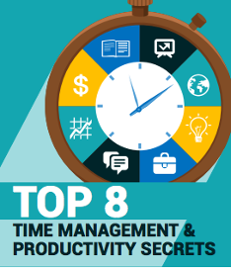Leadership Tips for First Time Millennial Managers

The year 2016 has been the period where millennials have been heavily studied. And they should be. They already form 25% of the workforce in US, and by 2020, they are going to form 50 % of the global workforce1. HR departments across the world have been concerned with attracting, retaining, and motivating millennials. A close attention to what they really want will give a list of three things that millennials care about the most1:
- Opportunities for career progression
- Competitive wages
- Excellent Training/Development Programs
It is inevitable, based on the demographic changes and motivating factors for this generation, that we will soon have many millennial managers. And if you are a millennial, you will soon find yourself in a managerial role.
So, what can you do if you find yourself in a leadership role for the first time? Here are a few tried and tested recommendations for first time managers2,3 :
- Managing Others’ Perceptions:
What people perceive as your abilities becomes realities. Therefore, it is important to manage the following factors:
- People mainly take note of how you treat your older colleagues, ex-peers who may now report to you, and how you respond to different situations
- As a millennial it is easy to be impatient with questions that people can easily Google, but how you handle those scenarios is more important, especially since you will deal with a workplace that is more diverse than ever. Always remember how you communicate, in most instances, is more important than what you actually say.
- It is a fact that it will be more difficult for someone who dresses and acts unprofessionally to gain the respect of their direct peers, so dress your part.
- Gaining Respect and Commitment from Direct Reports:
It is a common perception that good individual performers will do well as managers – after all that is the next step in career progression and succession planning. You will even find many types of software on the market catering to such principles, and the majority of organizations still promote people to management roles based on individual performances. However, here is the reality check: irrespective of your individual performance when you become a manager the clock resets. Your performance will be judged not just by peers and superiors but also by those who report directly to you. So:
- Admit to not knowing: Humbly saying “I don’t know, but let me find out and get back to you” and getting back to someone is the simplest way to gain respect
- Asking for opinion of direct reports and seniors not only helps to get their buy in, but come up with a better solution
- Set goals and communicate to your team clearly. Clarifying goals to your direct reports helps them to know how you will judge their performance. It also gives the impression of you having a good handle on your job.
- Reframing Roles and Responsibilities: Define the roles and responsibilities of your team members and delegate clearly. Your role, as a manager, is to create a self-organizing team that can perform well without a lot of handholding.
- Exercising Authority: With the title of a ‘Manager’ it is easy to feel powerful based on the power of the position, but do not forget about the ‘referent’ and ‘expert’ power. Control based solely on position and micro-managing is the last thing you want to do. Remember to distribute as much of decision-making authority to your direct reports to improve co-operation and results.
- Determining the extent of Personal Relationships: You may be enjoying great communication and jovial relationship with your direct reports and peers, and you should not cut-off personal relationships you enjoyed before you were promoted. Having said that, try keeping it professional so you are not blamed for favouritism, and manage the ability to be fair in all aspects.
Specific things you should do as a Millennial Manager:
- Face to Face Conversations Matter: As a millennial you may be on some kind of instant messaging app 24 x 7, but remember face time still matters. Good feedbacks sound even better in person and negative ones appear more humane when done in a constructive manner, in person.
- Clearly communicate to your superior: As a millennial manager, your superior might already be worrying about your departure. Communicate your career goals and vision for your team and organization with them. This will help both of you to create a roadmap for both your own and the organization’s success.
- Manage your stress: Technology can easily take over your life and overwhelm you. Disconnect from it periodically and regularly review how and what systems or apps you are using to help your productivity.
Remember, people don’t leave jobs they leave their bosses! So, be the kind of manager you’d want.
About the Author:
 Salma Sultana is the Marketing Manager at StarGarden Corporation. She has over six years experience working in various roles in Research, System Analysis and Project Management. She holds a MBA from Simon Fraser University, Vancouver.
Salma Sultana is the Marketing Manager at StarGarden Corporation. She has over six years experience working in various roles in Research, System Analysis and Project Management. She holds a MBA from Simon Fraser University, Vancouver.
To become an effective manager, you need to manage your time well. Download our Top 8 Time Management and Productivity tips e-Book to get practical tips.
References:
2) The First-Time Manager - by Loren B. Belker, Gary S. Topchik
3) http://uthscsa.edu/gme/documents/Recommendationsfor1stTimeMgr.pdf


